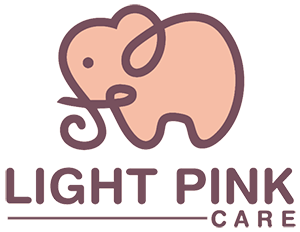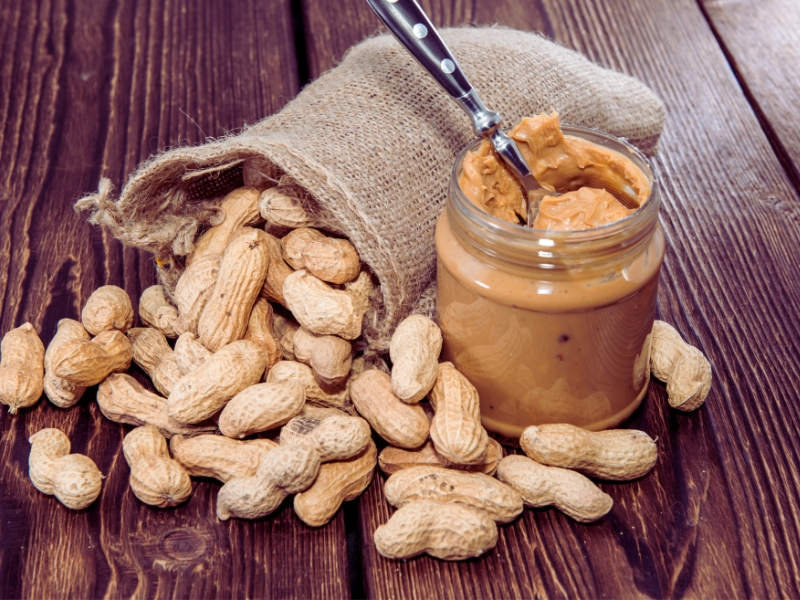Is Peanut Butter Safe During Pregnancy?
Yes, you can eat peanut butter while pregnant, and it is generally considered safe, Peanut butter is not just a tasty treat; it’s also packed with protein, healthy fats, and essential nutrients like magnesium and Vitamin E. For most pregnant women, it’s safe to include in their diet. However, some factors need consideration:
- Allergy History: If you or your partner have a history of peanut allergies, consult your doctor before consuming peanut butter during pregnancy. Studies indicate that eating peanut butter doesn’t necessarily increase the risk of allergies in babies, and some research even suggests it may prevent allergies.
- Moderation is Key: Overeating peanut butter can lead to excessive calorie consumption, which may cause unnecessary weight gain or digestive discomfort.
- Gestational Diabetes: Choose sugar-free peanut butter to maintain stable blood sugar levels.
Can You Eat Peanut Butter While Pregnant First Trimester?
Yes, you can eat peanut butter during the first trimester of pregnancy. It is safe and provides beneficial nutrients, but consume it in moderation and choose natural varieties without added sugars or unhealthy oils. Always consult your healthcare provider if you have specific concerns.
Can You Eat Peanut Butter While Pregnant Second Trimester?
Yes, peanut butter is especially beneficial during the second trimester when your baby experiences rapid growth. The protein and healthy fats support fetal brain development, while nutrients like magnesium help prevent cramps and support your body as it adapts to the baby’s increasing needs.
Can You Eat Peanut Butter While Pregnant Third Trimester?
In the third trimester, your baby’s brain and nervous system develop rapidly. The healthy fats in peanut butter, particularly monounsaturated fats, support this development. Additionally, peanut butter’s magnesium content can help with leg cramps, which are common during this stage of pregnancy.
Dear Mom, you can safely enjoy peanut butter at any stage of your pregnancy. Let’s explore the benefits of peanut butter together with insights from our Light Pink care expert.
Know more about
Can You Eat Deli Meat While Pregnant
can you eat olives while pregnant
Nutritional Benefits of Peanut Butter
Peanut butter can be a beneficial food for pregnant women due to its nutritional profile:
- Protein Source: It provides essential protein, crucial for the growth and development of the baby.
- Healthy Fats: Rich in monounsaturated fats, peanut butter supports heart health and provides energy, which is important during pregnancy.
- Folate: Peanut butter contains folate, a vital nutrient that helps prevent neural tube defects in the developing fetus.
- Iron: It contributes to iron intake, which is essential for preventing anemia and supporting increased blood volume during pregnancy.
- Vitamin E: This antioxidant supports immune function and skin health for both mother and baby.
- Magnesium: Important for muscle and nerve function, magnesium helps manage pregnancy-related muscle cramps.
- Fiber: The fiber content aids in digestion and can help alleviate constipation, a common issue during pregnancy.
- Satiating: Its combination of protein and healthy fats can help manage hunger and maintain energy levels.
Light Pink Care tip: Moderation is key, and it’s important to choose natural or unsweetened varieties to maximize health benefits. Always consult with a healthcare provider regarding dietary choices during pregnancy.
Types of Peanut Butter to Choose
When selecting peanut butter during pregnancy, consider the following types:
- Natural Peanut Butter: Contains minimal ingredients (just peanuts and possibly salt). It lacks added sugars and unhealthy oils, making it a healthier choice.
- Organic Peanut Butter: Made from organically grown peanuts, free from pesticides and synthetic fertilizers, which can be beneficial for both mother and baby.
- Unsweetened Peanut Butter: Avoids added sugars, reducing unnecessary calorie intake and potential blood sugar spikes.
- Low-Sodium Options: If you’re concerned about salt intake, look for low-sodium varieties to help manage blood pressure.
- Fortified Peanut Butter: Some brands add vitamins and minerals, such as folic acid or omega-3 fatty acids, which can be beneficial during pregnancy.
Always check ingredient labels to ensure there are no added preservatives or unhealthy fats. Moderation is essential, so enjoy peanut butter as part of a balanced diet.
Can Peanut Butter Help with Common Pregnancy Symptoms?
Yes, peanut butter can help with several common pregnancy symptoms:
- Nausea and Morning Sickness: The healthy fats and protein in peanut butter can help stabilize blood sugar levels, which may alleviate nausea.
- Fatigue: Peanut butter provides a good source of energy due to its healthy fats and protein, helping combat fatigue.
- Constipation: The fiber content in peanut butter can aid digestion and promote regular bowel movements, addressing constipation issues common in pregnancy.
- Cravings: Its rich flavor and satisfying texture can help satisfy cravings for something creamy or nutty, making it a healthier snack option.
- Heartburn: Some women find that consuming small amounts of peanut butter can help coat the stomach and reduce heartburn symptoms.
- Mood Swings: The protein and healthy fats can help maintain stable energy levels and mood, potentially reducing irritability.
- Swelling: The magnesium in peanut butter can help manage fluid retention and muscle cramps, which may alleviate swelling.
Your healthcare provider may not always recommend that you eat peanut butter as often as you’d like. There are certain situations where it may be best to avoid it. Let’s explore these circumstances in the next section of our article.
Know more about
Tips for coping with pregnancy symptoms
Pregnancy-Safe Dietary Supplements
Situations When You Should Avoid Peanut Butter
Here are some situations when you may want to avoid peanut butter:
- Allergies: If you have a peanut allergy or a family history of allergies, it’s crucial to avoid peanut butter to prevent severe allergic reactions.
- Gestational Diabetes: While peanut butter can be a healthy snack, it’s high in calories and fat. If you have gestational diabetes, portion control is essential, so consult your healthcare provider.
- Gastrointestinal Issues: If you experience digestive issues like heartburn or acid reflux, peanut butter may exacerbate these symptoms for some individuals.
- Weight Management: If you’re trying to manage your weight during pregnancy, monitor your intake of peanut butter due to its calorie density.
- Specific Dietary Restrictions: If your healthcare provider recommends a specific diet for any health condition, ensure that peanut butter fits within those guidelines.
- High Sodium Intake: Some peanut butter varieties contain added salt. If you’re advised to limit your sodium intake, choose low-sodium options or avoid it altogether.
We reiterate the importance of consulting your healthcare provider for tailored advice regarding your diet during pregnancy.
Easy Ways to Incorporate Peanut Butter in a Pregnancy Diet
Peanut butter is versatile and can be included in a variety of meals and snacks:
- Breakfast Ideas:
- Spread on whole-grain toast or pancakes.
- Swirl into oatmeal with a drizzle of honey.
- Snacks:
- Dip apple slices or celery sticks in peanut butter for a nutritious snack.
- Pair with crackers for a quick, filling option.
- Smoothies: Blend peanut butter with a banana, milk, and ice for a protein-packed smoothie.
- Recipes: Use peanut butter as a base for energy balls, stir it into sauces for savory dishes, or bake it into muffins.
These ideas make it easy to enjoy peanut butter throughout your pregnancy. So, can you eat peanut butter while pregnant? Yes, and it can be a nutritious and delicious part of your pregnancy diet. From supporting fetal brain development to providing mom with a quick energy boost, peanut butter offers numerous benefits. Just be mindful of allergies, portion sizes, and the type of peanut butter you choose. Whether it’s a snack to combat morning sickness or an addition to your favorite smoothie, peanut butter is a versatile food worth including during pregnancy.
No, eating peanut butter doesn’t increase the risk of allergies in your baby. In fact, some studies suggest it might help prevent allergies.
Choose natural, unsweetened peanut butter without added sugars or hydrogenated oils.
There’s no scientific evidence linking food cravings to the baby’s gender. Craving peanut butter likely reflects your body’s need for protein and healthy fats.
Yes, peanut butter is safe and beneficial during the first, second, and third trimesters when eaten in moderation.
Yes, but stick to sugar-free options and consume it in small portions to avoid blood sugar spikes.Can peanut butter cause allergies in my baby during pregnancy?
What’s the best peanut butter to eat while pregnant?
Does craving peanut butter during pregnancy indicate a boy or girl?
Is it safe to eat peanut butter during all trimesters?
Can I eat peanut butter if I have gestational diabetes?

